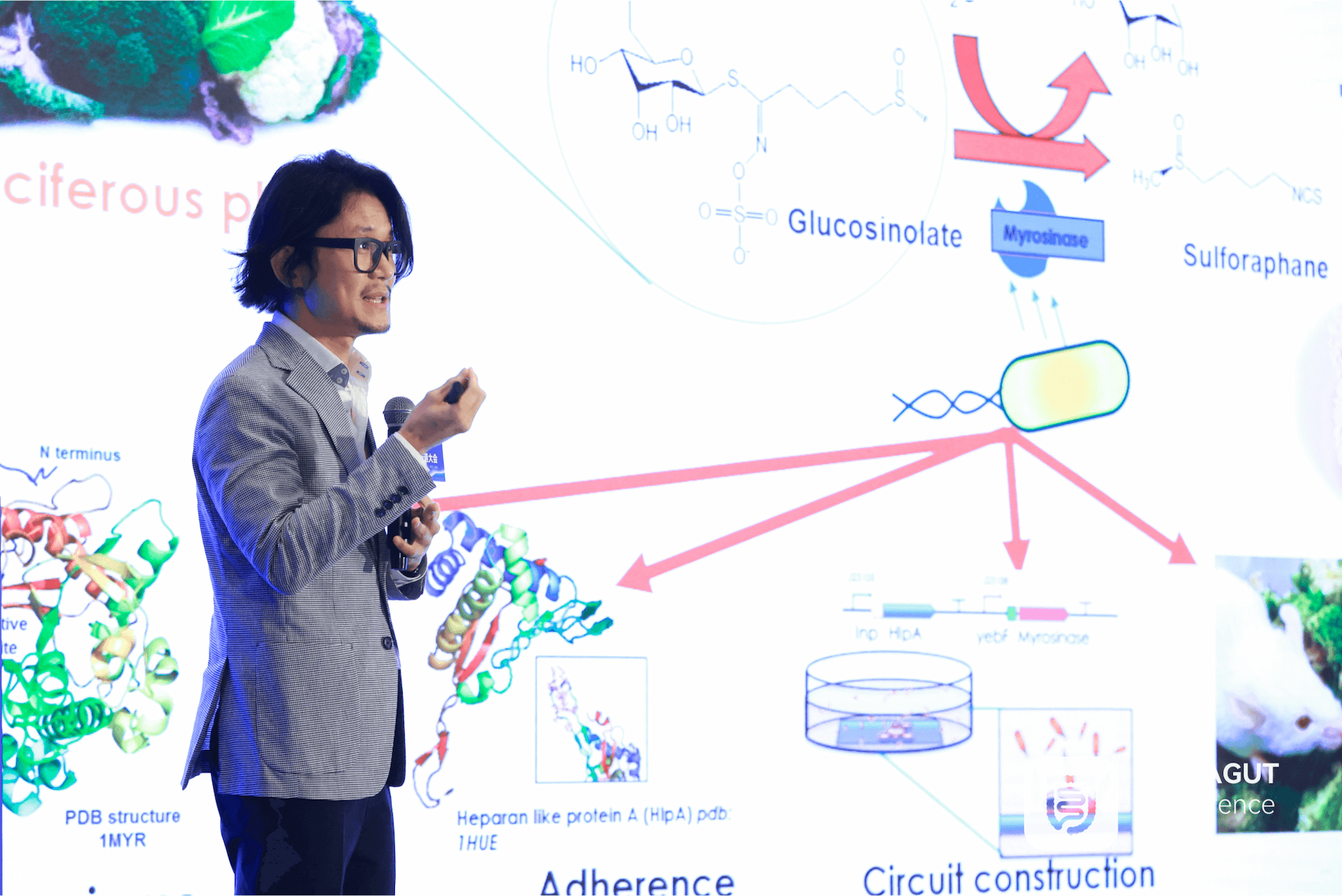ASBA Representation in the China Gut Conference 2023
ASBA Representation in the China Gut Conference 2023
The China Gut Conference was held in Beijing this year from May 20th to the 22nd with the aim of establishing interdisciplinary communication in the academic world. This conference saw many speakers, including many academicians and renowned scientific experts from across the globe.
At this year’s China Gut Conference, many ABSA members attended the conferences, where many shared their research findings with the scientific community. Amongst these speakers, Professor Matthew Chang, a member of the ASBA steering committee, was invited to give a keynote lecture on his research entitled “Engineering microbes to rewire host-microbiome interactions.”
In this session, he shared the work conducted by his research team, where his team engineered various microbial chassis to tackle many day-to-day research concerns. These programmed microbes were used to counter various gut-related ailments such as colorectal cancers and gut pathogenic infections. In an effort to combat pathogenic infections, his team has designed an auxotrophic probiotic-based Escherichia coli Nissle 1917 for the sustained treatment of Pseudomonas aeruginosa and Clostridium difficile infections. Both these microbes detect subtle changes in the surrounding extracellular matrix. In these studies, the detection of quorum sensing molecules1 and bile salt dysregulation2. Through the reprogramming of cellular genetic regulation, the probiotic microbes produce effector proteins to clear the infections by killing vegetative pathogenic microbes while inhibiting microbial growth and germination.
He also shared the research on developing microbial interventions to treat colorectal cancer by harnessing unused dietary metabolites to target and kill the cancerous cells. According to the speaker, the human body lacks the ability to convert dietary glucosinolates to anticancer derivatives from the isothiocyanate. Through engineering the commensal probiotic microbe, Escherichia coli Nissle 1917, to bind onto the surface of tumors, the effective delivery of the enzymes on the surface of the cancer cells3. This binding to the tumor surface allows the targeted delivery of the anticancer agents to kill the cancer cells, resulting in over 75% tumor reduction in murine models.
Through the sharing and constructive discussions between conference attendees, open dialogues and collaborative ties have been forged between various individuals. In doing so, it is expected that more interesting findings and developments will be expected in the near future in the field of gut-related research.
 Prof. Matthew
Prof. MatthewFootnotes
-
Hwang, I., Koh, E., Wong, A. et al. Engineered probiotic Escherichia coli can eliminate and prevent Pseudomonas aeruginosa gut infection in animal models. Nat Commun 8, 15028 (2017). https://doi.org/10.1038/ncomms15028 ↩
-
Koh, E., Hwang, I.Y., Lee, H.L. et al. Engineering probiotics to inhibit Clostridioides difficileinfection by dynamic regulation of intestinal metabolism. Nat Commun 13, 3834 (2022). https://doi.org/10.1038/s41467-022-31334-z ↩
-
Ho, C.L., Tan, H.Q., Chua, K.J. et al. Engineered commensal microbes for diet-mediated colorectal-cancer chemoprevention. Nat Biomed Eng 2, 27–37 (2018). https://doi.org/10.1038/s41551-017-0181-y ↩
